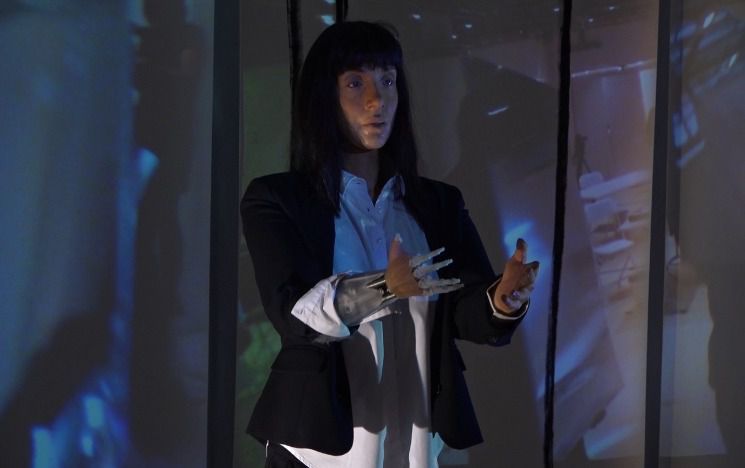Robot Opera

At the Centre for Research in Opera and Music Theatre (CROMT) we began a robot opera project in 2017, combining creative practice research with scholarly reflection. These included Robot Opera – a mini symposium (June 2017), Robot Opera – What’s Next? (June 2019) and Robo_Po /// Robo_Op (June 2021), which included a robot poetry reading and an operatic performance featuring Cleo, a robot designed and built by Engineered Arts, a manufacturer of humanoid entertainment robots. The events were streamed live to an international audience and concluded with a reflective panel discussion by artists, academics and industry professionals.
We focus on: creative exploration of human robot interaction; how new technologies create new forms, challenging our understanding of voice, embodiment and performance; and scholarly reflection on robotic otherness, artificial intelligence (AI), and human/robot hybridity, including the ethical dimensions of our relationships with robots.
How do we read a robot’s presence on stage? How would a robot sing if it sang like a robot, rather than emulating a human? How might its own materiality and physicality produce voice? On a more philosophical level, who is singing, when a robot sings? Why are we creating robots in our own image? What can creative practice reveal about the behaviours and biases we embed in AI? What sorts of relationships do we want with robots, and who is making these decisions?
Robot Opera is supported by Research and Knowledge Exchange in Media, Arts and Humanities and the Sussex Humanities Lab. Researchers include Evelyn Ficarra, Tim Hopkins, Chris Kiefer, Ron Chrisley, Carol Watts and Kat Sinclair. External links include Apartment House, Engineered Arts, Southeast Dance and Elizabeth Jochum, director of RELATE at Aalborg University in Denmark.